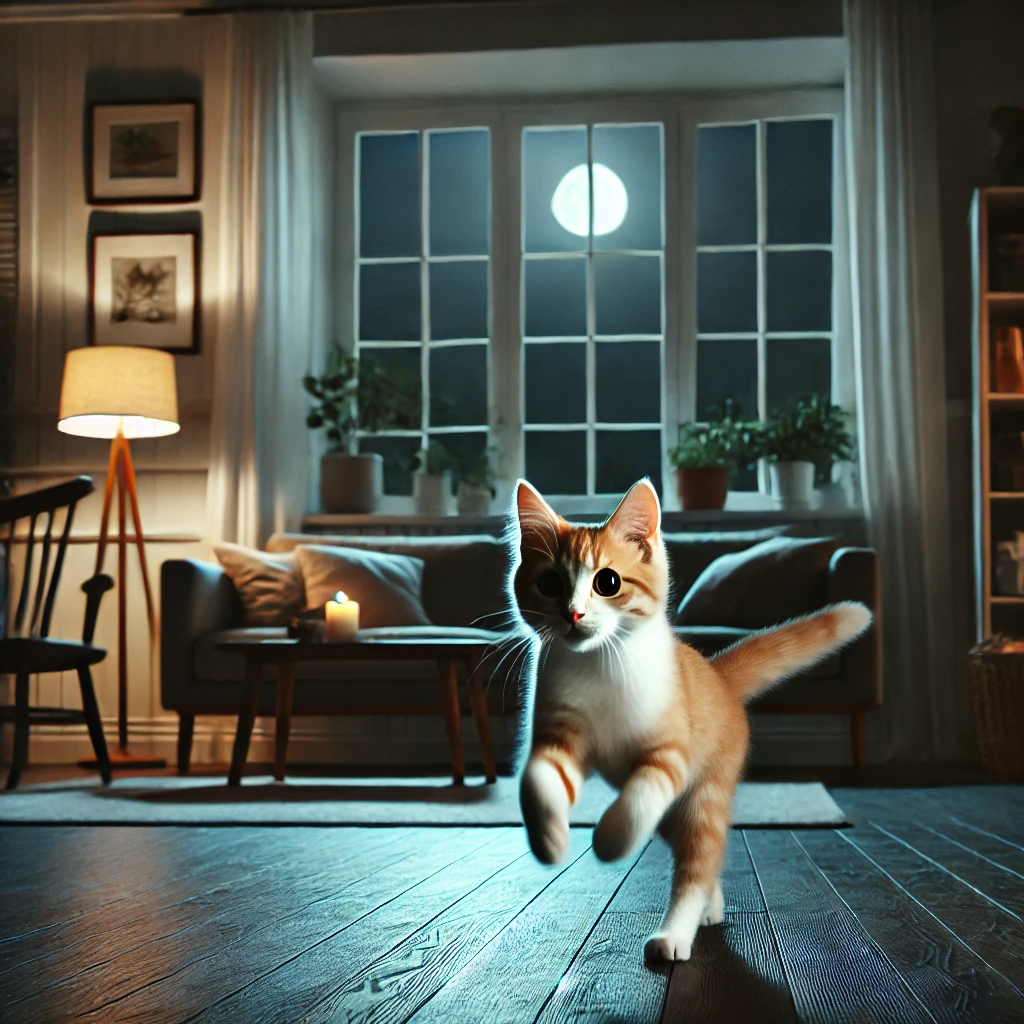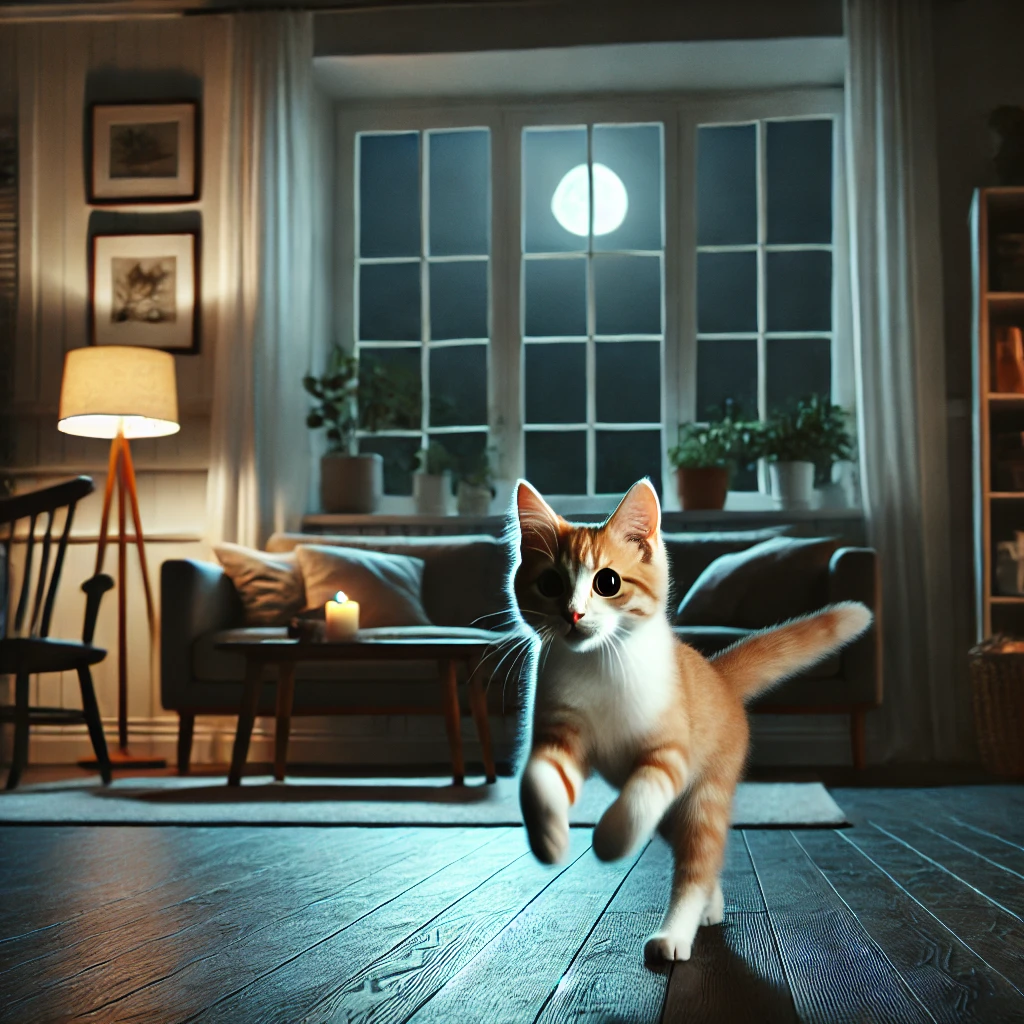
Why Cats Run Around at Night and How to Stop It
Cats are known for their quirky and unpredictable behavior, and one of the most common mysteries for cat owners is why their feline friends turn into energetic sprinters during the night. This phenomenon is often referred to as “midnight zoomies,” and while it may seem amusing at first, it can quickly become disruptive for your sleep. In this article, we will explore the reasons behind cats running around at night and provide practical solutions to help manage this behavior.
Why Do Cats Get the Midnight Zoomies?
1. Instinctual Hunting Behavior
Cats are natural predators, and their hunting instincts are deeply ingrained. In the wild, cats are crepuscular, meaning they are most active at dawn and dusk. However, in a domestic setting, these instincts can manifest at odd hours, particularly when they have pent-up energy from a lack of stimulation during the day.
2. Excess Energy
If your cat spends most of the day lounging or napping, they are likely to build up a surplus of energy that needs to be released. The nighttime “zoomies” are often a way for them to burn off this stored energy.
3. Attention-Seeking Behavior
Sometimes, cats learn that running around at night gets your attention, even if it is negative. If you respond by yelling or chasing after them, your cat may interpret this as playtime.
4. Nocturnal Play Drive
Some cats simply love to play at night. Without a proper outlet for their playful instincts during the day, they may wait until the house is quiet and dark to unleash their energy.
5. Dietary Factors
An irregular feeding schedule or low-quality food that does not meet your cat’s nutritional needs can lead to hyperactivity. Cats may feel hungry or restless if their energy needs are not met properly.
6. Medical Issues
In rare cases, excessive nighttime activity can be a symptom of an underlying medical issue, such as hyperthyroidism or stress. If the behavior seems unusual or persistent, a visit to the vet is recommended.
How to Stop Your Cat from Running Around at Night
1. Increase Daytime Activity
Engage your cat with interactive play sessions during the day to tire them out. Use toys like feather wands, laser pointers, or treat puzzles to keep them physically and mentally stimulated. Aim for at least two play sessions of 15-20 minutes each day.
2. Establish a Routine
Cats thrive on routine. Establish regular feeding, playtime, and sleep schedules to help regulate your cat’s internal clock. Feeding your cat a small meal before bedtime can help them settle down for the night.
3. Create a Calm Sleeping Environment
Provide a quiet and cozy sleeping area for your cat. Consider adding a comfortable bed or blanket in a low-traffic area of your home. Soft lighting or calming white noise can also help reduce nighttime restlessness.
4. Avoid Encouraging Nighttime Play
Refrain from interacting with your cat when they exhibit zoomies at night. Responding to their behavior reinforces the idea that nighttime is playtime. Instead, ignore them and reward calm behavior during the day.
5. Use Enrichment Tools
Interactive toys, cat trees, scratching posts, and climbing shelves can provide enrichment and opportunities for exercise while you are busy during the day.
6. Address Any Health Concerns
If you suspect that your cat’s nighttime activity is due to medical issues, consult your veterinarian for a thorough check-up. Identifying and addressing health problems early is key to ensuring your cat’s well-being.
Final Thoughts
While the “midnight zoomies” can be frustrating, understanding the reasons behind your cat’s behavior is the first step toward managing it effectively. By providing adequate stimulation, maintaining a routine, and creating a calm environment, you can help your cat burn off energy during the day and enjoy a peaceful night’s sleep. If the behavior persists despite your efforts, consulting with a veterinarian can help rule out any underlying health concerns.
Remember, patience and consistency are key when it comes to understanding and addressing your cat’s nighttime antics. With the right approach, both you and your feline companion can enjoy better sleep and a happier relationship.


